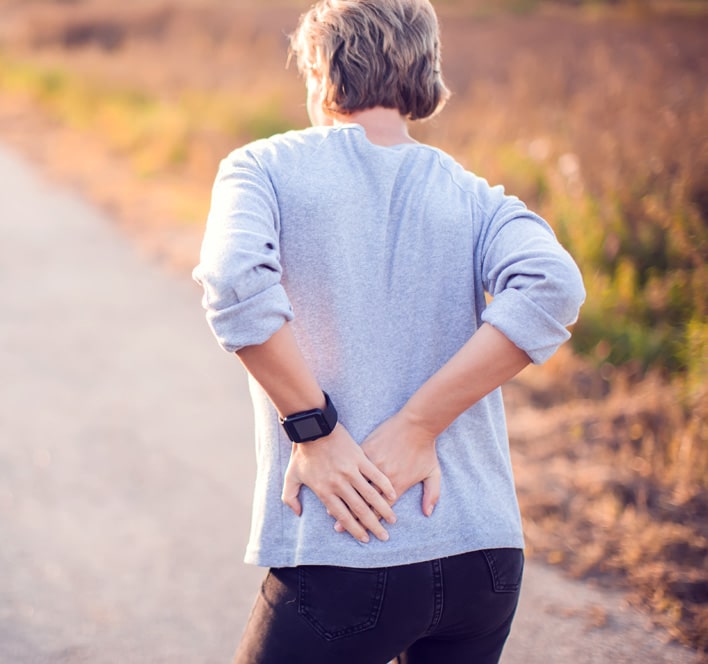Suffering a hip labral tear can make the simplest tasks feel like impossible obstacles. Depending on the severity of your injury, a hip labral tear may be a serious condition resulting in joint instability and future complications. Due to a rupture in the acetabular labrum, the cartilage that lines the socket in the hip joint, a hip labral tear will not heal on its own. It may respond well to conservative treatments like physical therapy and medication management.
At NJ Spine & Orthopedic, we can help you regain control of your life so you can get back to doing the activities you love. We offer state-of-the-art conservative and minimally invasive treatment options that best fit your condition and recovery goals. If you need arthroscopic hip surgery, our award-winning medical team utilizes the latest technology and techniques to take care of your hip issues and get you back on your feet.
What Is a Hip Labral Tear?
A hip labral tear is a trauma or damage to the cartilage and tissue in the hip socket. As a cushion to the hip bone joint, the tough cartilage and connective tissue lines the rim of the hip socket and prevents the bones from rubbing against each other. The labrum also helps keep the leg bone in place and increases the joint’s stability.
The labrum can tear for numerous reasons, including car accidents, sports, or sudden injury. However, many hip labral tears have no direct cause and may have developed over time. Symptoms of a hip labral tear include the following:
- Limited, potentially painful range of motion
- Decreased flexibility
- Stiffness, tenderness, or inflammation in the affected joint
- Discomfort and pain emanating from the hip joint
- A clicking or popping sound or sensation in the injured joint
We can help assess and expertly diagnose your hip labral tear and build a customized treatment plan based on your unique conditions. We dedicate ourselves to relieving your discomfort by first utilizing conservative treatment options.
Hip Labral Tear Symptoms
A hip labral tear can happen anywhere along the labrum but may cause similar symptoms regardless of the type of tear. Hip labral tear symptoms may include the following:
- Pain in the hip, groin, or buttocks
- Pain when you walk, run, or sleep
- Stiff hips
- Limited range of motion
- A clicking or locking sound or sensation
A hip labral tear can happen gradually or suddenly due to trauma. Sports, high-impact exercise, and repetitive motions may cause this condition. To diagnose a hip labral tear, the highly experienced medical team at NJ Spine & Orthopedic will assess your condition based on your symptoms. We utilize state-of-the-art diagnostic testing and research to determine the site and severity of your condition to create a treatment plan based on your needs.
Seeking Treatment for a Hip Labral Tear
We combine advanced technology, research, and state-of-the-art facilities with a patient-centered approach to ensure our patients get the best possible outcomes. At NJ Spine & Orthopedic, you may have several treatment options depending on the severity of your condition, including the following:
- Medication management and rest: Using Non-steroidal anti-inflammatory drugs can reduce inflammation and pain in your hip. Combined with rest, a minor hip labral tear may recover.
- Physical therapy: Physical therapists may strengthen the region surrounding the hip. A physical therapist may also provide an exercise routine and modifications to increase flexibility and stability.
- Chiropractic care: A chiropractor may help relieve symptoms related to misalignments in the body using different adjustment techniques based on your individual symptoms.
- Labral Debridement: This procedure removes torn or weakened parts of the labrum caught in the hip joint.
- Labral Repair: This procedure reattaches the labrum using anchors and stitching back to the bone.
- Labral Replacement: This procedure uses a graft to replace a severely damaged labrum.
While a hip labral tear cannot heal on its own, various treatment options can help strengthen and recover the cartilage and tissue in the hip.
How to Find the Best Treatment Option for Your Needs and Lifestyle
If you think you have a hip labral tear, we strongly recommend you speak with a doctor about your circumstances as soon as possible. The specialists at NJ Spine & Orthopedic have extensive experience helping people in their recovery from major injuries, so you can also come to us and have an assessment for injuries we might be able to treat.
Without close consideration of your circumstances, personal needs, and lifestyle, it can be difficult to decide what combination of care to apply to your injuries. However, we do not recommend allowing your hip labral tear heal on its own without medical guidance. Often, your labral tear will require at least significant rest to heal properly. In most cases, your doctor can let you know if you should supplement rest with additional kinds of care.
Schedule an Appointment With NJ Spine & Orthopedic for a Hip Labral Tear Assessment Today
If your hip labral tear keeps you from doing the activities you love, the award-winning medical team at NJ Spine & Orthopedic can help. Our board-certified physicians and specialists can provide conservative and minimally invasive treatment options to help diminish your symptoms and discomfort.
Schedule an appointment with one of our hip and joint specialists today by calling (866) 553-0612 or filling out our contact form.

